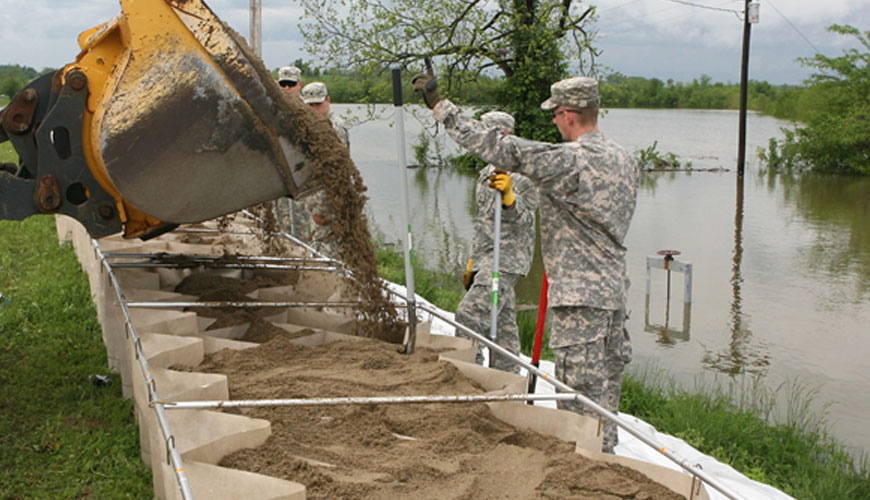

EUROLAB laboratory provides testing and compliance services within the scope of the CEN TS 14416 test standard. This technical specification describes a laboratory procedure for rapid testing of the resistance of polymeric, bituminous or clay geosynthetic barriers to root penetration. Suitable for testing welded seams or other potential areas of weakness.

This technical specification describes a method for testing the resistance of a geosynthetic barrier to root penetration. Such resistance is a requirement for many uses of geosynthetic barriers.
Part of the geosynthetic barrier is placed in the soil where the seeds are planted. After six to eight weeks, the geosynthetic barrier is examined to see if the roots of the young plants have penetrated.
After six weeks (eight weeks in winter), empty the pots and inspect the top and bottom surface of the geosynthetic barrier for roots in or through.
EUROLAB assists manufacturers with CEN TS 14416 test compliance. Our test experts, with their professional working mission and principles, provide you, our manufacturers and suppliers, the best service and controlled testing process in our laboratories. Thanks to these services, businesses receive more effective, high-performance and quality testing services and provide safe, fast and uninterrupted service to their customers.
To get an appointment, to get more detailed information or to request an evaluation, you can ask us to fill in our form and reach you.